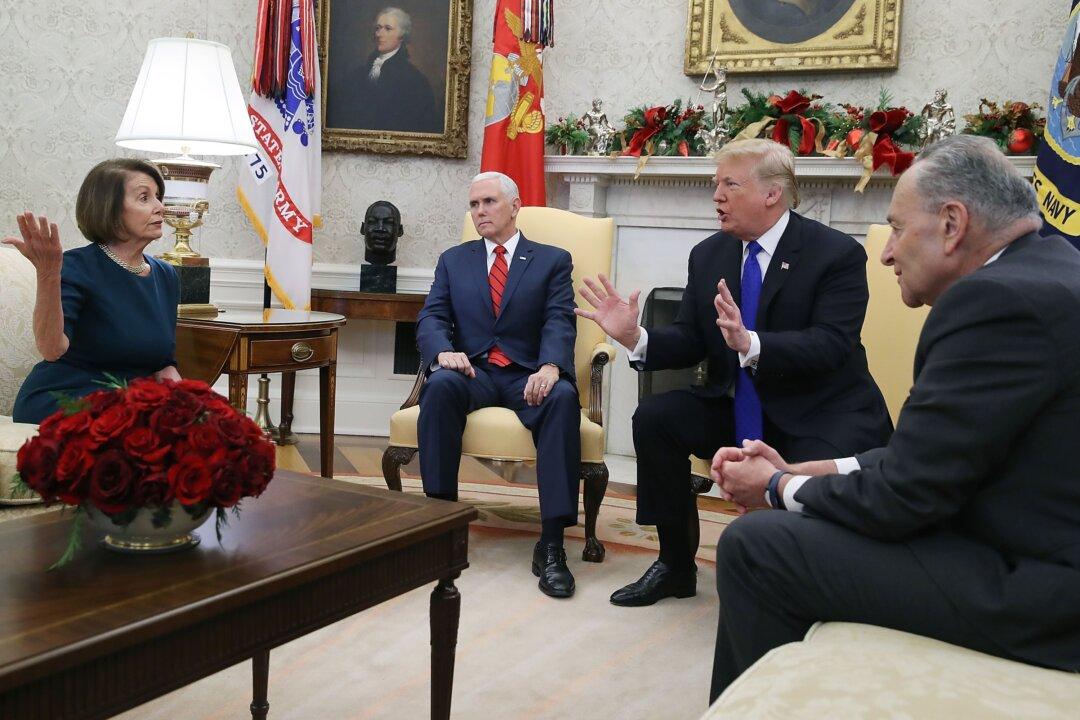Democratic leaders have proposed to end the partial government shutdown and delay a decision on border wall funding until February.
“Democrats have offered two bills which separate the arguments over the wall from the government shutdown,” Senate Minority Leader Chuck Schumer (D-N.Y.) and House Minority Leader (and presumptive Speaker of the House) Nancy Pelosi (D-Calif.) said in a joint statement on Dec. 31.





